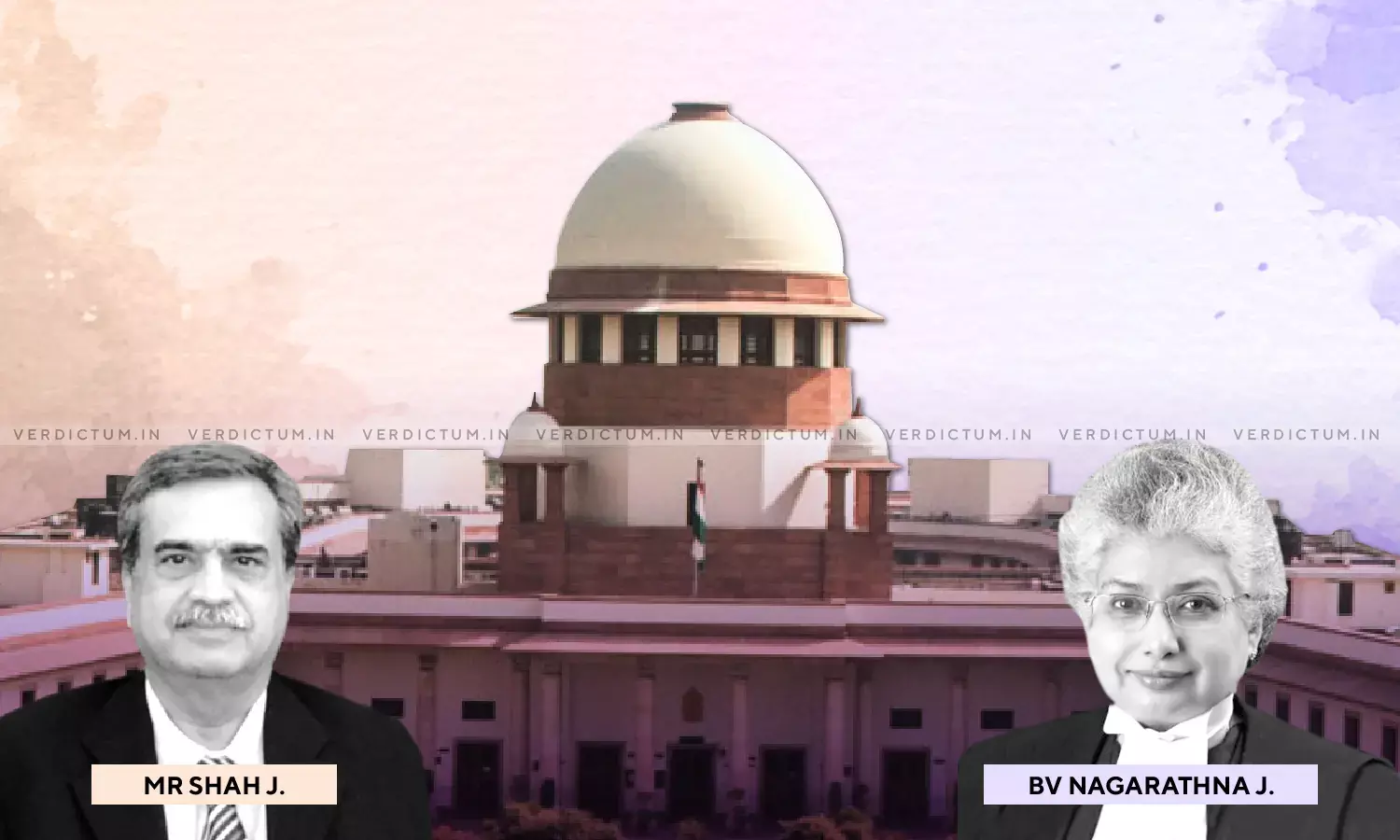Evidence Of Hostile Witness Can Be Considered To The Extent It Supports Prosecution's Case – Supreme Court
The Supreme Court has held that the evidence of a hostile witness can be considered to the extent, it supports the case of the prosecution.
"As per the settled position of law, even the evidence of a hostile witness can be considered to the extent, it supports the case of the prosecution.", the bench of Justice M. R. Shah, and Justice B. V. Nagarathna observed.
Facts of the Case
The Complainant's daughter and son were found with their throats slit, at their residence. One of the prosecution witnesses had spotted the Accused with the Deceased that day, prior to the murder. Based on the Accused's disclosure statement u/s 27 of Evidence Act, a bag containing blood-stained clothes was recovered. The statement of the Doctor that carried out first aid on the Accused after he sustained injuries while committing the offence was also obtained. The shopkeeper who sold the knife that was used to commit the offence to the Accused, testified and identified both the weapon and the Accused.
On examining the evidences on record, the Trial Court convicted the Accused and sentenced him to life imprisonment.
The Accused challenged the order of the Trial Court. The High Court acquitted the Accused noting that there is no direct evidence and that the prosecution has not established the complete chain of circumstances to prove the guilt of the Accused beyond reasonable doubt.
Feeling aggrieved by the Order of the High Court of Punjab & Haryana quashing and setting aside the conviction passed by the Trial Court for offence under Section 302 of IPC, the State and the Original Complainant approached the Supreme Court.
Neeraj Kumar Jain, Senior Advocate appearing on behalf of the Complainant and Advocate Ruchi Kohli, representing the State contended that the High Court has not properly appreciated the fact that the knife used in the commission of the offence was purchased by the Accused as testified by the shopkeeper who sold it. Further, blood stained clothes of the Accused were recovered, and the Accused's injury sustained while committing the offence was treated by a Doctor, who appeared and gave a statement before the court.
On the other hand, Aditya Dhawan, counsel representing the Accused argued that the present case is based on circumstantial evidence and as such the primary eye-witness turned hostile. He further emphasized that the Prosecution had failed to prove motive by leading cogent evidence.
On considering the submission made by the Counsels, the Bench expressed that – "As per the settled position of law, even the evidence of a hostile witness can be considered to the extent, it supports the case of the prosecution. Therefore, prosecution has established and proved the motive to that extent."
In this context the Bench observed that – "Another link in the evidence, which establishes and brings home the guilt of the accused person is the recovery of the knife in three pieces, recovered from the place of occurrence, which was used for commission of the offence."
It was further noted by the Bench that – " The next link in the chain of evidence is the recovery of Loi having blood stains of the deceased Kavita as well as of the accused, which Loi was recovered on the basis of the disclosure statement made by the accused himself." "One another circumstance, which will go against the accused would be that an injury on the ring finger of the left hand of the accused was found. The accused has failed to explain the injury on him."
Further, the Bench noted that – "The High Court has not properly appreciated the entire evidence on record, more particularly, the findings recorded by the Trial Court, which as such were on appreciation of the entire evidence on record."
In view of the above, the Apex Court restored the order of conviction and the sentence imposed by the Trial Court, and quashed, set aside the order of the High Court.
Click here to read/download the Judgment



